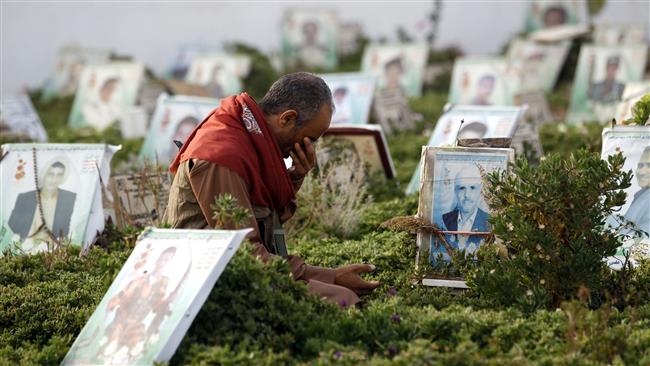
RNA - The condemnable attack appears to have been deliberate, with Saudi officials claiming it was against a “legitimate military target,” requested by the Saudi-backed proxy forces, and that Shi’ite “renegades” were present in the hotel, the apparent target. It being a hotel in a major city, however, there were obviously only civilians within. And that’s according to the doctors on the ground and Oxfam!
This is the deadliest single attack so far in 2017. It is not the deadliest attack of the war, however, which was an October incident in which the Saudis bombed a funeral procession, killing at least 140 people.
The Saudis have been under growing criticism for the huge civilian death toll their air war has caused. The number of airstrikes have been on the rise through 2017, and the civilian death toll resulting from them has already far surpassed the whole toll of 2016. What’s more, Saudi Arabia is not doing this all alone; it has partners in crime and for good reasons, which makes them complicit in the ongoing Saudi war crimes:
1- The illegal war is now in its third year. As a direct result of the war and the blockade imposed by Saudi Arabia and its allies, Yemen is now the scene of the world’s most pressing humanitarian crisis. There is a cholera epidemic - half a million people have been infected - millions face starvation, and the country’s infrastructure has largely been destroyed by US-backed, Saudi-led indiscriminate aerial campaign.
2- Al-Qaeda in the Arabian Peninsula (AQAP) controls large swaths of southern Yemen where it has now the best organized and most capable entity operating there. The war is a gift to AQAP but it has also been a bonanza for the US and UK-based arms manufactures who have sold billions of dollars of weapons to Saudi Arabia and its coalition partner the United Arab Emirates. Not to be left out are the Persian Gulf based private military companies that are also making millions from their contracts with Saudi Arabia and the UAE whose army largely consists of mercenaries.
3- In UN reports and meetings there is no discussion of the role of the US and the UK in the war on Yemen, much less their private contractors. Nor is there any mention of the arms manufacturers in both countries who are happily supplying many of the weapons used by Saudi Arabia and the UAE to devastate a country of 25 million. Despite the humanitarian crisis, the current set-up seems to suit the Saudis and their terror proxies, to the extent that they would appear to be quietly cooperating with each other. Big money is being made and if the war ends the money stops.
4- By looking the other way, the UN and the international civil society are doing a disservice to the millions of Yemenis, who want nothing more than the cessation of hostilities and a return to relative normalcy. Most simply want to be able to feed their families and send their children to school sure in the knowledge that they will not be shot by a sniper or be incinerated by a US or UK manufactured smart bombs dropped by a Saudi jet.
5- American and British governments are by no means blameless. Former and current politicians and officials are suspected of being complicit in Saudi war crimes. They presided over and indeed encouraged Saudi Arabia’s relentless aerial campaign on the pretext of containing Iran. Saudi terror proxies like ISIL and AQAP - who might not have even existed as a military force had it not been for policies put in place by the US and Saudi Arabia - are also far from blameless. They help their patrons in a brutal battle for regime change and continue to help lay siege to the poorest regions along the Yemeni-Saudi border.
All this and more doesn’t need to be termed as “incredibly complex and divisive.” There is a genuine interest on the part of Ansarullah resistance movement and Ali Abdullah Saleh forces to end the conflict. The problem is, the US, the UK and Saudi Arabia, as well as their proxy forces – including ISIL and AQAP – refuse to respond. This is while there is a rich history of negotiated settlements in Yemen and it has a culture that prioritizes and respects de-escalation.
Rather than focusing on international norms and protocols, the billions being made by Western arms manufacturers and private contractors are surely more worthy of a UN examination as a driver of conflict in Yemen and further afield. In a word, it’s a racket for the Military-Industrial Complex as well as opportunists and warmongers in both London and Washington - surely the most profitable and the most vicious.
847/940